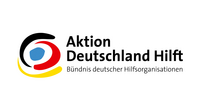Sierra-Leone 2015-2016
One year Ebola free
On March 17th, 2016 Sierra Leone was officially declared “Ebola free”. And with this declaration, the devastating epidemic was perceived as overcome in the public eye and the people could return to their everyday lives. But this appearance is deceiving, because the effects of the disease are still clearly noticeable: Fear of a new outbreak of the epidemic still reins, which leads to physical suffering and also strong societal upheavals.
The situation is especially difficult for survivors. They are often seen as “unclean” or even “dangerous”, experience stigmatisation and are excluded from social life. “We have been treated like animals, food was simply thrown before our door”, describes a survivor in the village Kroo Bay. In addition, children whose parents or families whose provider died during the epidemic, are by and large left to fend for themselves. There are no social safeguards; the lucky ones receive support from relatives or neighbours.
In response to this situation, the local partner Development Initiative Programme (DIP) and the German organisations ‘Friends of Waldorf Education’, ‘Kinderhilfswerk Global Care’, ‘LandsAid’, and ‘TERRA TECH’ began a joint project in 2015. It makes a return to society possible for survivors, offers them medical and psycho-social care, and shows them economic perspectives. This project includes informational events about Ebola in order to counter fears and stigmatisation. Besides this, volunteers are trained to become health care aides. Many children, who lost their parents during the epidemic, are given the opportunity to attend school through donations in kind and financial aid. Furthermore psycho-social measures for the treatment of traumata are being carried out. For adult survivors agricultural trainings are being offered and occupation related starter kits with relevant tools are being handed out. For example, seamstresses are given sewing machines; farmers seeds. This makes a self-determined life possible for affects persons.
(Text: TerraTech NGO)
Aid in Ebola-Region
For a few weeks now, only a few new Ebola infections have been reported in West Africa, Liberia is considered by the WHO to be “Ebola free”. Despite this, the situation in the region is just as before tense. The result of the epidemic alone in Sierra Leone was and is dramatic. Over 12,000 people sickened in the country, around 4,000 deaths were reported. These visible results carry with them many hidden effects.
One of the greatest problems is that the survivors are often stigmatised, discriminated, and cast out from society. In addition to these social tensions, there are also dramatic economical effects. The infected persons were completely cut-off from the outside world while in quarantine and therefore could not generate any income. Furthermore agricultural activities, food production, as well as the processing and marketing of food were severely disrupted. This led to shortages in the food supply throughout the country. Besides these, the Ebola crisis also left behind long-term psychological traumata.
In order to fight against the social and economic effects of Ebola, the Friends of Waldorf Education is cooperating with the German organisations “Terra Tech,” “Kinderhilfswerk Global Care,” and “LandsAid” as well as the local organisation “Development Initiative Programme” in Sierra Leone. Together a catalogue of methods is being developed, which dismantle societal discrimination and support reintegration. These should build-up trust and make a peaceful coexistence possible.
Economic and Psychosocial Trainings
1,000 households will each be provided with work-related tools and material worth 100 euros. In order to support survivors long-term, they will receive training in general financial questions and specifically in micro finance management. Furthermore psycho-social advising will follow. Because the physical, psychological, and social well-being of affected persons are an existential foundation for a hopeful view of the future.
Agricultural Trainings
For 2,400 persons from 80 communities, agricultural trainings will be carried out. These trainings serve on the one hand to increase the income of these communities, and on the other hand, ensure the availability of food on the local markets. Content of these trainings include organic farming and sustainable agriculture. The goal is to train the participants so that they can then pass on their new knowledge to their communities.
Sensitisation with an Educational Film
An educational film about how to react to the psychosocial traumata of children and adolescents was produced. The film describes the physical and psychological effects of a traumatic event for children and adolescents. In addition, it shows concrete ways of dealing with these effects in everyday life and in school. An existential question is how structure, rituals, and orientation can be created for children and adolescents.
Trainings for Healthcare Aides
1,500 young adults will be trained as healthcare aides. At the end of their training, they will be able to spot new infections and also to support post-quarantine households. The health care aides will carry-out activities on a local level to eliminate stigmatisation and discrimination as well as inform people about topics such as hygiene and coping with trauma.
Support for Ebola Orphans
For 500 Ebola orphans and children especially affected by Ebola, the ability to attend school will be ensured. They will be given school uniforms, backpacks, books, as well as notebooks and pens.
Target Group of the Project
13,900 children, adolescents, and adults will directly benefit from the measures. The indirect target group is much larger. It includes around 150,000 persons, who will also benefit from the measures for example family members and local communities.
Inclusion of All Relevant Actors
The project’s success is dependent on its societal acceptance. Therefore representatives from all governmental levels will participate and representatives of the civil society (women and youth leaders, religious leaders etc.) will be closely integrated into the carrying out of the project.


